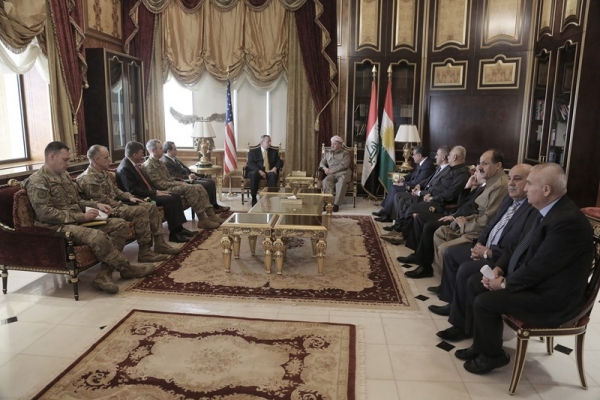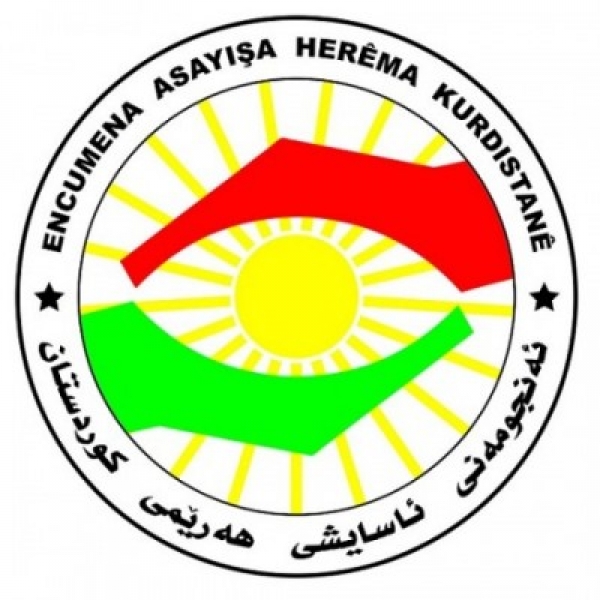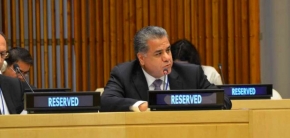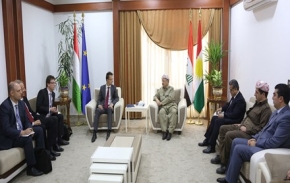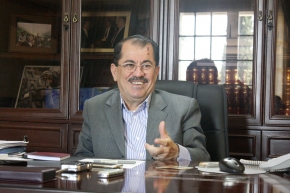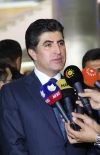President Barzani Receives President Obama's Special Presidential Envoy
Salahadin, Kurdistan Region of Iraq, (Krp.org)- President Masoud Barzani welcomed a United States military and diplomatic delegation headed by General John Allen, the Special Presidential Envoy for the Global Coalition to Counter ISIL. General Allen was accompanied by a number of officials from both the departments of State and Defense. The meeting began by Mr. Allen expressing his acknowledgment of the sacrifices of the Peshmerga forces in the current global effort against the terrorists of the Islamic State, adding that that has even further strengthened the relations between the Kurdistan Region and the United States.
President Barzani who welcomed the delegation with the presence of the Chancellor of the Kurdistan Region Security Council, Mr. Masrour Barzani as well as a number of military personnel including the Minister of Peshmerga Affairs, spoke of the latest military developments in the war against the terrorists of the Islamic State.
President Barzani and General Allen discussed the latest events concerning the efforts against the Islamic State including Russia's involvement where President Barzani reiterated his position of welcoming any help against the terrorists and called for more cooperation between the partners in the U.S.-led coalition against the terrorists of the Islamic State.
President Barzani repeated on behalf of the people of the Kurdistan Region his appreciation for the support from the United States and other allies in the war against the Islamic State, and added that this war will end with the victory of the free world and the defeat of the cruel terrorists of the Islamic State.
KRSC statement: Fourth major Peshmerga offensive west of Kirkuk clears more than 140 square kilometres
Fourth major offensive in west of Kirkuk clears more than 140 square kilometres. Peshmerga Forces secure Ghara Heights, push ISIL beyond the river between Ghara Heights and Mt. Varies, and secure additional stretch of Kirkuk - Samarra highway
From 1900hrs on September 29 to 0530hrs on September 30, International Coalition warplanes targeted dozens of Islamic State in Iraq and the Levant (ISIL) positions ahead of another major ground offensive led by Peshmerga forces.
The objectives were to reach Ghara Heights, located West of Mt. Bawita, secure additional stretch of the Kirkuk-Samarra Highway, push ISIL terrorists further South of the river West of Mt. Bawita, and further diminish ISIL's ability to threaten the Kurdistan Region.
Peshmerga forces began their ground offensive at 0600hrs. By 1400hrs, they reached and controlled Ghara Heights. This strategic position overlooks several villages South of Mt. Batiwa still controlled by ISIL terrorists. Today's advance has pushed ISIL terrorists further South of the river, further diminishing ISIL's ability to attack Peshmerga forces and putting additional pressure on ISIL in Hawija.
The offensive, launched from three fronts West of Kirkuk, included approximately 3,500 Peshmerga. More than 140 square kilometres were cleared, including the following areas: Meziriya, Gubebe, Seda, Mohammed Khalil, Qows Kurd, Tl Werd, Khelef and Mansuriya.
During the offensive ISIL terrorists were seeing fleeing the battlefield towards Hawija and surrounding areas.
International Coalition warplanes targeted 30 ISIL positions during the ground offensive, including three Humvees, three pick-up trucks and 1 VBIED. At least 40 ISIL terrorists were killed.
This is the fourth major ground offensive near Kirkuk since March 2015, clearing more than 670 square kilometres.
Office of The Chancellor
Kurdistan Region Security Council (KRSC)
Minister Bakir and head of Swiss Agency for Development discuss Kurdistan's urgent need for aid
New York, USA (dfr.gov.krd) - In New York this week, Minister Falah Mustafa Bakir, Head of the Department of Foreign Relations, discussed Kurdistan Region's urgent need for basic humanitarian needs at a meeting with Manuel Sager, State Secretary and Director General of the Swiss Agency for Development and Cooperation.
Minister Bakir gave a detailed account of the current situation in the Kurdistan Region, focusing on the latest humanitarian, economic, political developments and the ongoing fight against the terrorists of ISIS.
The Head of Foreign Relations highlighted the financial hardships that the KRG is facing due to the drop in oil prices, the impact of 1.8 million Iraqi displaced people and Syrian refugees on the Region’s stretched resources.
Minister Bakir called for continued international support for Kurdistan in humanitarian, political and military spheres and shed light on the KRG’s efforts to gather international support to recognize the genocide that the Yezidis suffered at the hands of ISIS.
Mr Sager said that the Kurdistan Region has friends in the international community and appreciated the KRG’s open-door policy for the displaced and refugees.
He reiterated Switzerland’s support for Kurdistan on the humanitarian field, especially through UN agencies and the International Committee of the Red Cross.
Minister Bakir and Secretary Sager agreed on continued communication and cooperation between both sides.
KRG delegation highlights Kurdistani issues in New York
New York, USA (dfr.gov.krd) - A Kurdistan Regional Government delegation was in New York this week during the United Nations 70th General Assembly to highlight the ongoing fight against ISIS and the humanitarian and economic challenges facing Kurdistan.
The delegation was led by Minister Falah Mustafa Bakir, Head of the Department of Foreign Relations. The KRG's Representative to the United States, Bayan Sami Abdul Rahman, accompanied the minister, along with Assistant Head of the DFR Siham Mamand and Advisor at the DFR Rawand Darwesh.
They met ministers and senior officials of various countries, representatives of the UN, the media and other organisations to update them on recent developments and to urge them to support the UN's call for more funds to help the displaced people who fled ISIS and are sheltering in Kurdistan and other parts of Iraq. The Kurdistan Region is sheltering 1.8million displaced Iraqis and Syrian refugees. This, combined with the fall in oil prices and the costly war against ISIS, are impacting services to the host and refugee communities and hampering Kurdistan’s vibrant economy.
The delegation also called for an investigation into the horrific events of last year in which the Yezidis and other minorities were targeted by ISIS terrorists in what amounts to genocide.
Minister Bakir spoke at a high level meeting at the UN urging friendly nations to do more to support Kurdistan with the humanitarian crisis.
Minister Bakir told the meeting, 'We support the efforts of the United Nation and the international NGOs working with us but indeed we need to do more in order to provide food, shelter and education in order to give them (the displaced) hope, otherwise this will be very difficult for us to cope with,” he said.
The KRG Minister made this intervention at a special UN session that focused on the humanitarian situation and its broader impact on Iraq. Leading the event, Sarah Sewall, US Undersecretary of State for Civilian Security, Democracy and Human Rights, outlined the threat to the displaced because the UN has struggled to raise the funds needed to continue its humanitarian programmes in Kurdistan and the rest of Iraq.
As she appealed to the international community to fund the UN’s programmes, Ms Sewall announced that the United States will contribute an additional $56m in humanitarian assistance for Iraq, bringing the US’s total contribution to Iraq, including Kurdistan, to $540m since start of fiscal 2014.
Several speakers praised the government of Iraq, the KRG and the people of Kurdistan for their compassion towards the displaced population. Iraq's Minister for Displacement and Migration Jasim Al-Jaf. Made a keynote speech at the which was attended by the representatives of several international organisations as well as diplomats.
President Masoud Barzani Welcomes Hungarian FM Péter Szijjártó
Kurdistan Region President Masoud Barzani welcomed Hungarian Foreign Minister Péter Szijjártó today. In a meeting between the two held in the city of Duhok, the President and the Hungarian Foreign Minister discussed the plight of internally displaced people and refuges in Kurdistan, and migrants and refugees heading to Europe from the region. The also discussed the efforts to defeat ISIS terrorists, and Hungarian contribution to this campaign.
The Hungarian Foreign Minister reiterated his country’s support to Kurdistan peshmerga forces with providing military assistance and training.
President Barzani thanked Hungary for its support to the peshmerga forces. On the refugee and migrant crisis, the President said that the root causes of this issue must be addressed. He said the threat of terrorism and economic challenges are two of the main causes forcing people to leave their countries.
On the fight against ISIS, President Barzani said the bulk of this fighting on the ground is on the shoulders of the peshmerga forces, adding that the world has yet to face this threat in a serious way.
Nazem Dabbagh in Talk with ISNA: to Solve the Problems itself Cause to Overcome ISIS
Nazem Dabbagh the representative of Kurdistan Region of Iraq in Iran in talk with the reporter of International Service of Iranian Students News Agency (ISNA) dealt with the present challenges of the relationship between Kurdistan and central government, of the fight with ISIS, of the way to control crises and of Kurdistan’s relations with Iran and Turkey whose outlines as followed:
He does not consider Iranians and Kurds as two separate nations and believes that the cultural and historical similarities have caused Kurds of Iraq have continually deemed Iranians as a part of their own. Dabbagh said: thousands of workforces now are in Kurdistan helping to improve there. In the Region we know Iranians of our own. In Kurds’ view Iranian citizens in the Region are recognized than other foreigners. We call them Iranian but others foreigners. When you travel to Kurdistan, you most often feel that you are in Iran as a result of lots of cultural similarities of both.
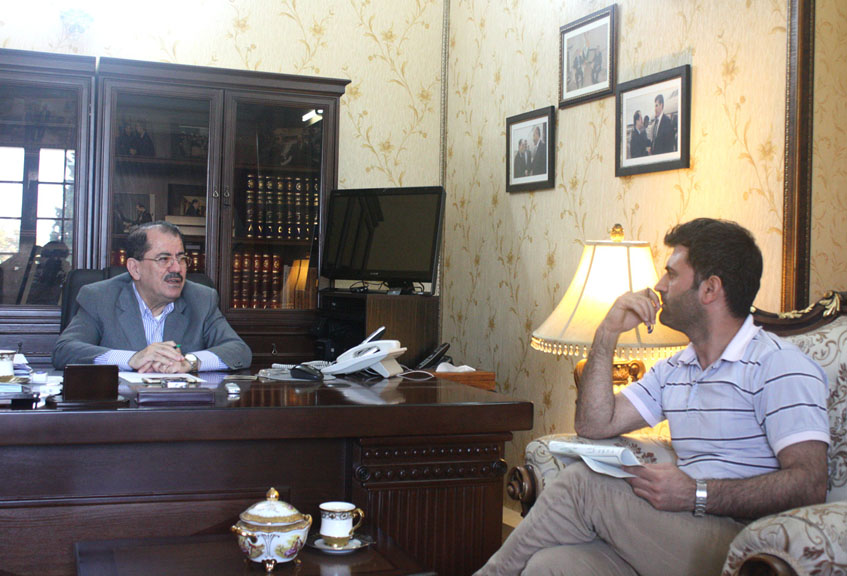
It has been said some of anti-revolution Kurdish cells now present in Kurdistan of Iraq and even are busy trying works, Nazem Dabbagh stated: this is known by Iranian government and these cells, according to present agreements, are not allowed to make any effort against Iran’s interests.
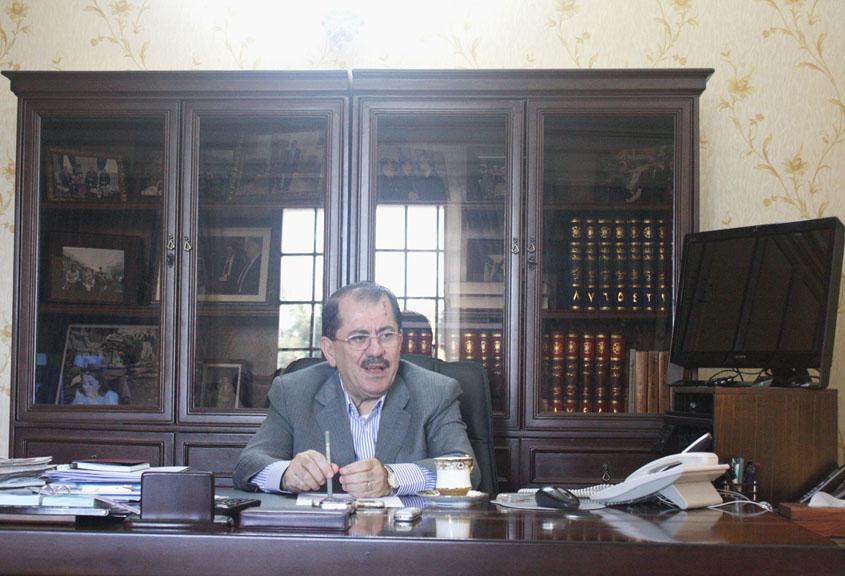
Denying any relations with Israel, Dabbagh said: no documents relating this has not given to Kurdistan Region so far. Some are following to create deep differences between us and Iran and through putting such things. They are seeking their aims but we as the representative of the Region in Iran have not heard even once such matter on the behalf of our authorities in any official meetings but just in few News Agencies, he added. Our relations with Israel are according to the constitution of Iraq, Does anyone believe that Kurdish are following to cause problems with Arabian nations and Iran for Israel!?
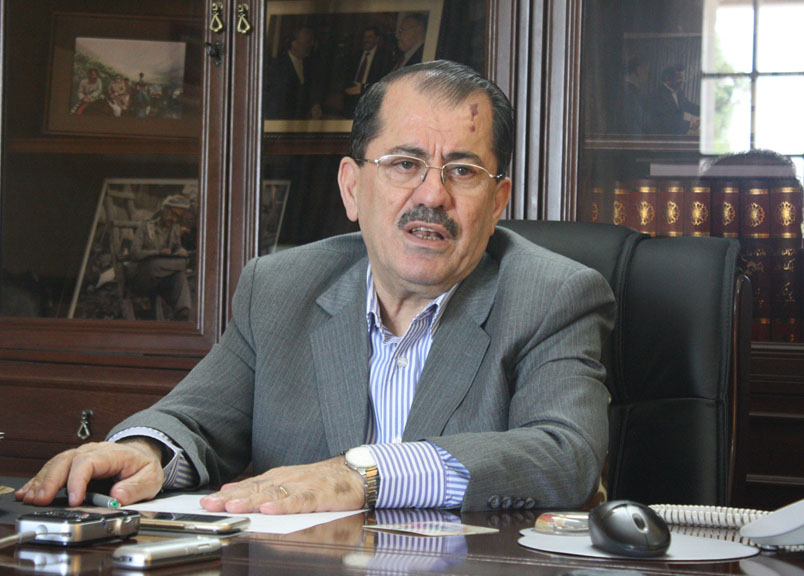
Concerning with important problem of “the independence of Kurds” being considered a vital security concern for neighbors, Iran in special, Nazem Dabbagh also stated: the matter of Independence of Kurds and of having an independent country is not only being put among Kurdish leaders but it also is all Kurds’ heartfelt desire from all over the world; however, desiring independence differentiate from declaring it. Declaring independence requires its special conditions and in my view it is not now prepared.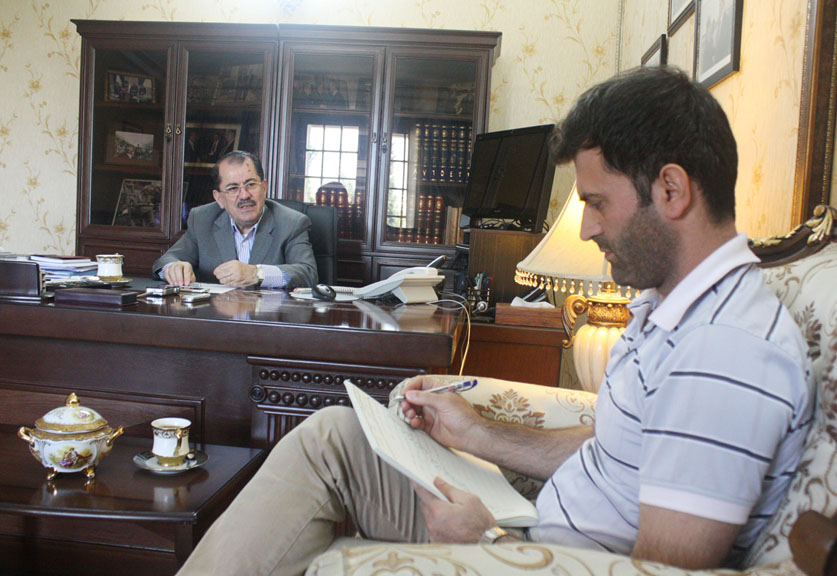
Relating the difference between Kurdistan Regional Government and Central Government of Iraq, Dabbagh said: in the past to cut the budget of the Region on the behalf of the Central Government caused Kurds to begin selling oil, aside from its being legal or not. There were not any other ideas. We are selling our oil and have come to an agreement, early in following Christian year, to do this with Central Government’s cooperation. It also pays us the money of sold oil; in spite of exporting oil according to the agreement with federal government, Baghdad denied to pay it us. These problems can be solved. We, monthly, sell $800 million oil and this earning was deposited to government’s treasury; however we have never been paid more than $400 million.
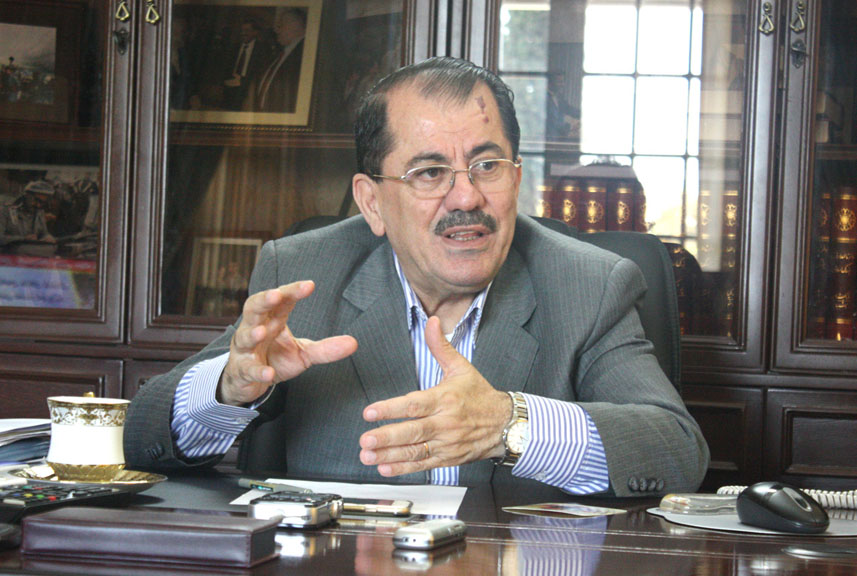
Dabbagh added: Pishmegas are one of the important forces fighting against ISIS now strongly defending the Region as a part of Iraq. They were fighting across Iraq, though. Pishmergas have many times fought in Basra, Karbala, Najaf, Baghdad and other regions in Iraq. Central government can make use of Pishmergas’ high ability, why did not Maliki (the former Prime Minister of Iraq) take advantage of Pishmergas to support Mosul?
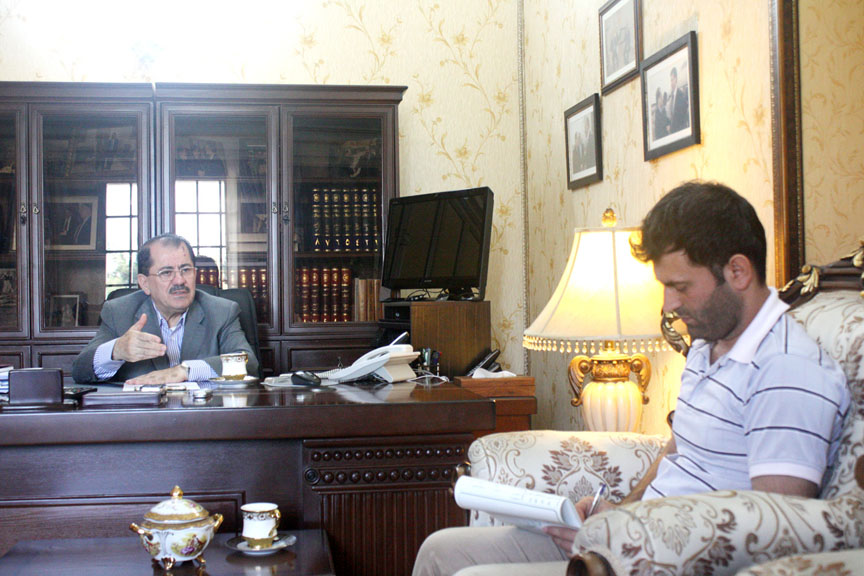
The head of Kurdistan Regional Representative Office added: our differences with central government are how to perform the constitution. But now we along with forces have practically released the regions in dispute occupied by ISIS. If there were not Pishmerga, the same regions were under ISIS’s control. Now the matter is to put the released zones in dispute go into the frame of constitution.
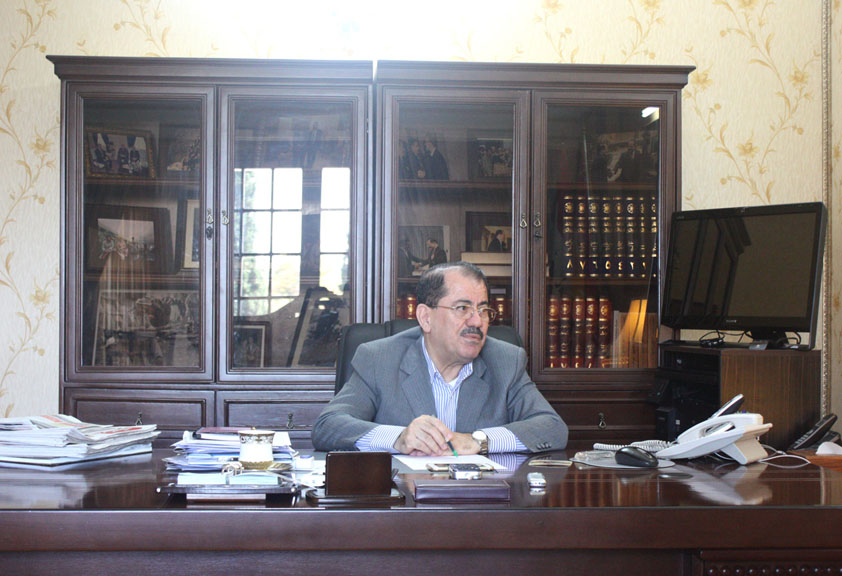
In another part of his phrasing as denying any rift among Kurds and confronting ISIS Dabbagh said: all Kurds including Pishmerga of the Region, P.K.K and Syrian Kurds in fight with ISIS are unified, and this unification strength 1050 km of battlefield with ISIS. There may be differences but just on little problems and military tactics. Kurds have not got basic differences about this.
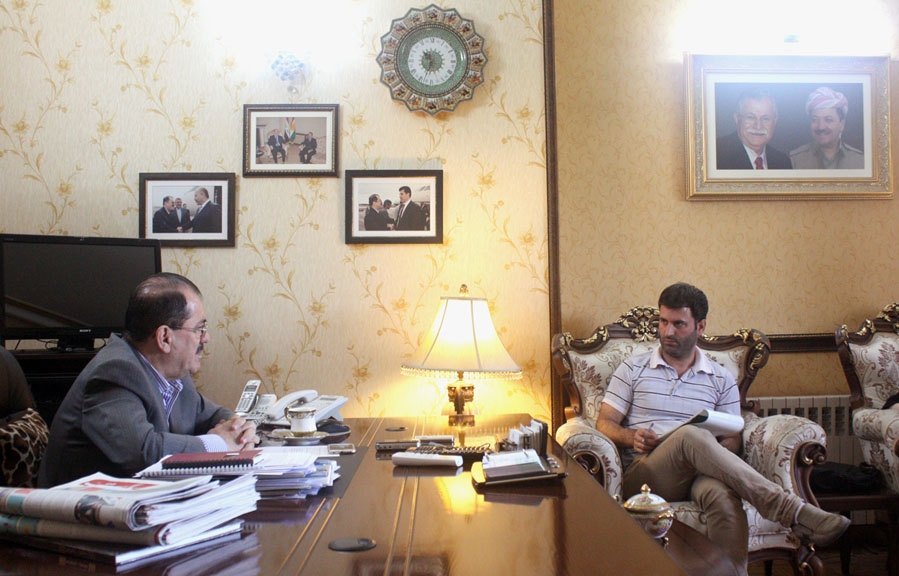
Dabbagh was asked for Turkey’s strike to the North of Syria and providing a safe zone, he replied: every country has to respect others’ laws. To create such safe zone refers to international rules whether it is allowed to do or not. If such act leads to prevent blooding and massacring non-armies, it is acceptable. However it is just not over Turkey but international societies to come up with decision and also it refers a bit to interior affairs of Syria.
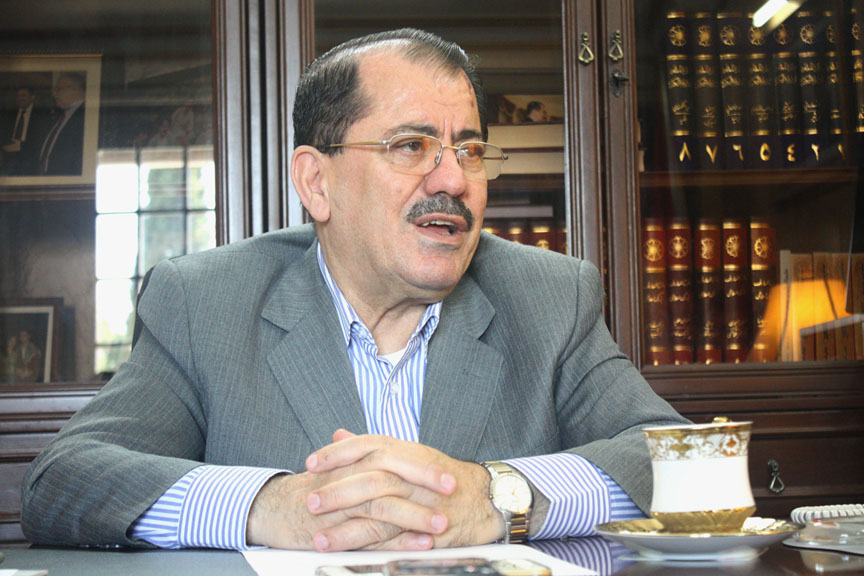
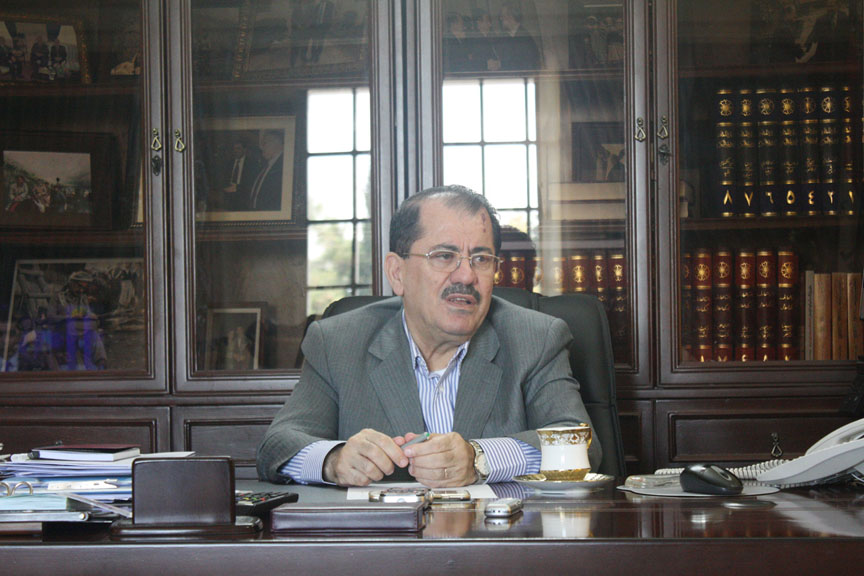
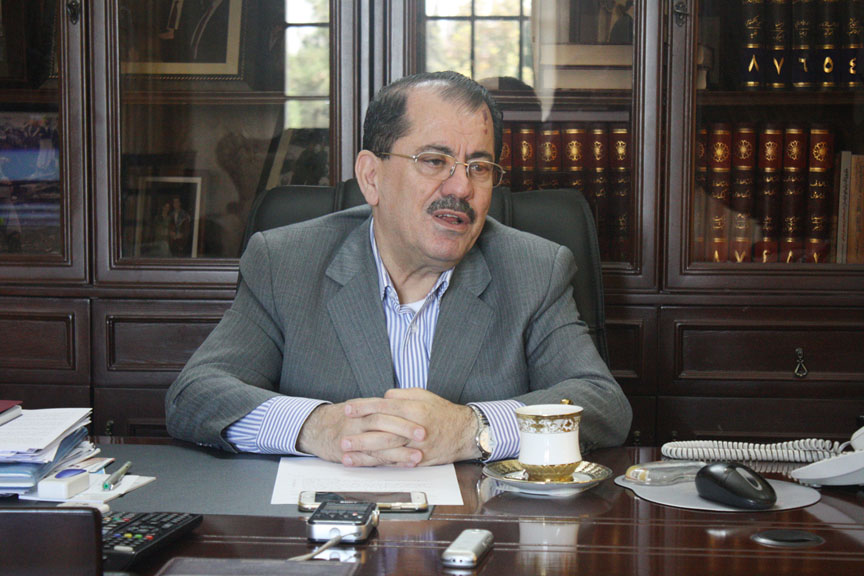
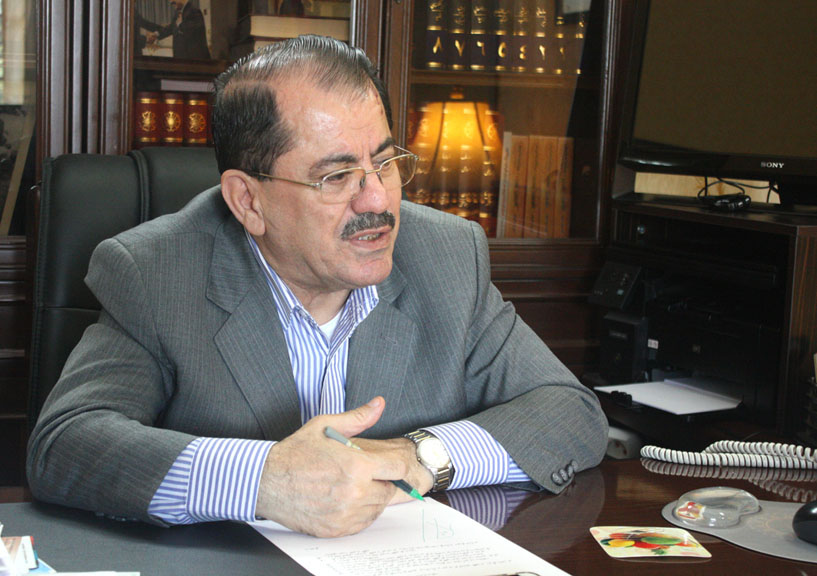
Nazem Dabbagh in Private Talk with Ilna News Agency: the Reformation Plan Should be More Considered
Nazem Dabbagh, the representative of Kurdistan Regional Government of Iraq in Iran, in talk with Farshad Golzari, the reporter of Ilna News Agency, replied several questions relating to Iraq and Kurdistan Region such as political geography of KR, Kurds’ relations with central governments during history, Adorno’s recent talks- the ex-commander of American Army Headquarters about disintegration, Kurds’ resistance in Kubane, Turkey’s elections and its perspective, the event of Suruc terrorist attack and … . The matter of reformation being pursued by Heydar Al-Ebadi, the Prime Minister of Iraq, was the center of the talk.
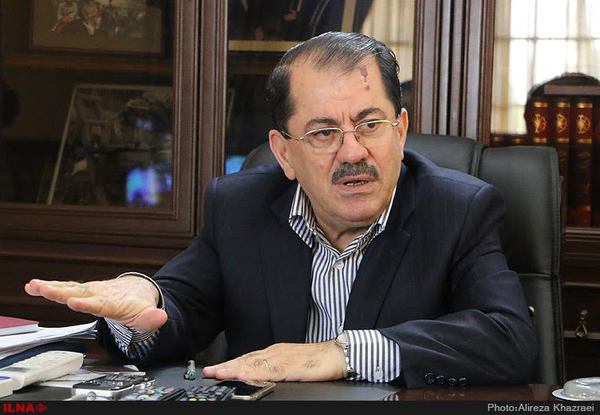
Insisting on the affirmativeness of the reformations plan of Iraq has been put the Prime Minister, he declared: any plan that is put as a fight against corruption should be deemed positive. In my opinion Heydar Al-Ebadi expressed braveness to announce the plan. However, if this plan was put with all groups influencing on forming Al-Ebadi cabinet, it would be more powerful. Now we witness a disagreement in Iraq not just limiting to Kurds or Sunni but Shia,; the events happening arise questions that who has been asked for advice and guide and what the main aim of this plan is, or whether the plan is a coup or a reformations plan. In my opinion in following weeks there may be greater problems in Iraq, in a manner that we may see a political clash.
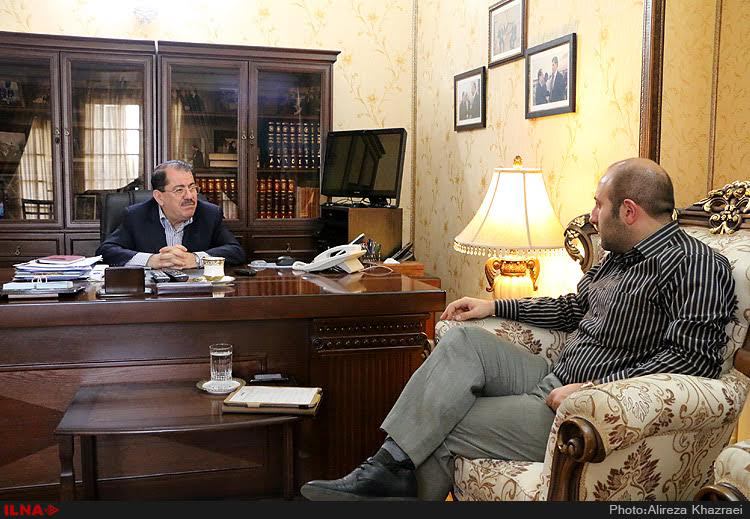
Pointing that this plan should have been more studied by the Prime Minister before being announced, he stated: the reformative plan is good but it seems that Al-Ebadi has made a mistake; It is meant that before the plan being announced he should have talked and discussed with main and important sides and forces of the country and then announced the reformative plan. All say that reformations and fight against corruption is good but what is now being put is that Kurdish population of Iraq share with the government of this country and has participated to form it. We need to know that when it is announced ministers have to be decreased, there are three Kurdish ministers, even among the deputies who are supposed to be expelled or their number to be decreased, there are also Sunni and Kurds. Thus this should be noticed that the role of the parties which have helped the government to be formed ought to be considered.
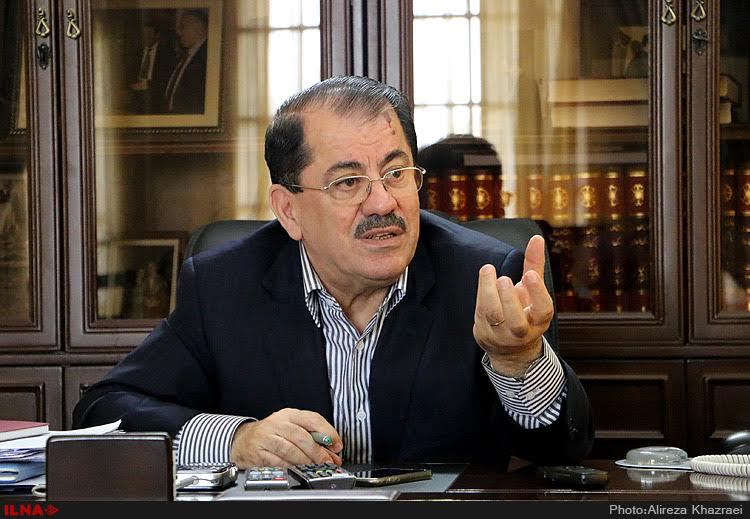
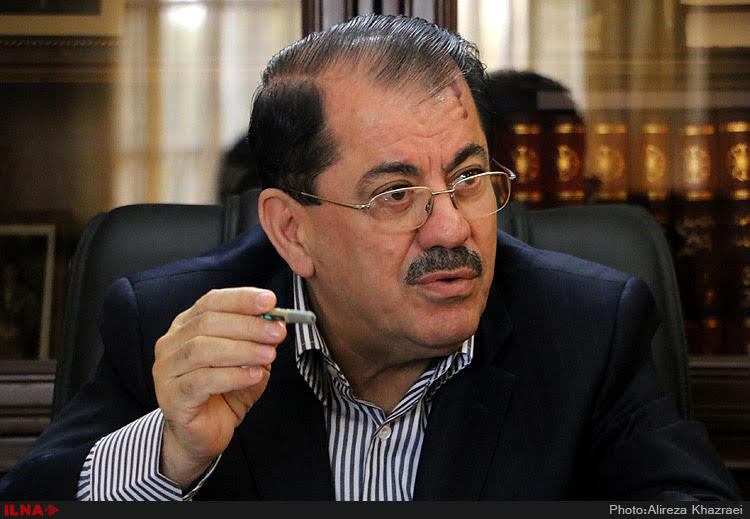
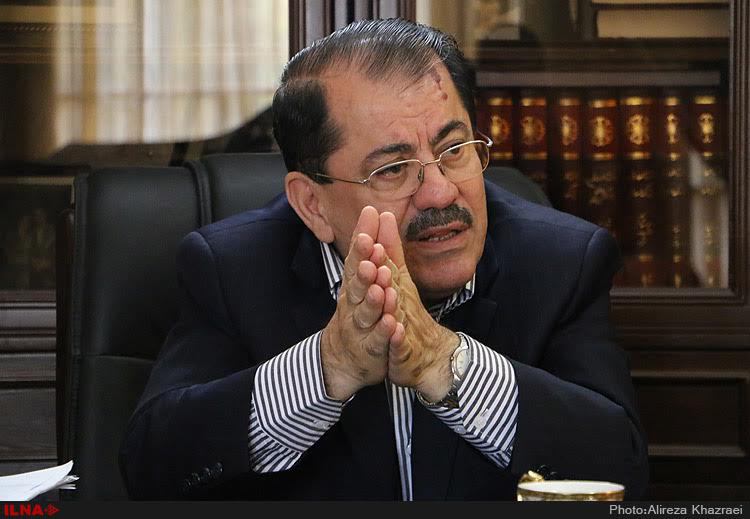
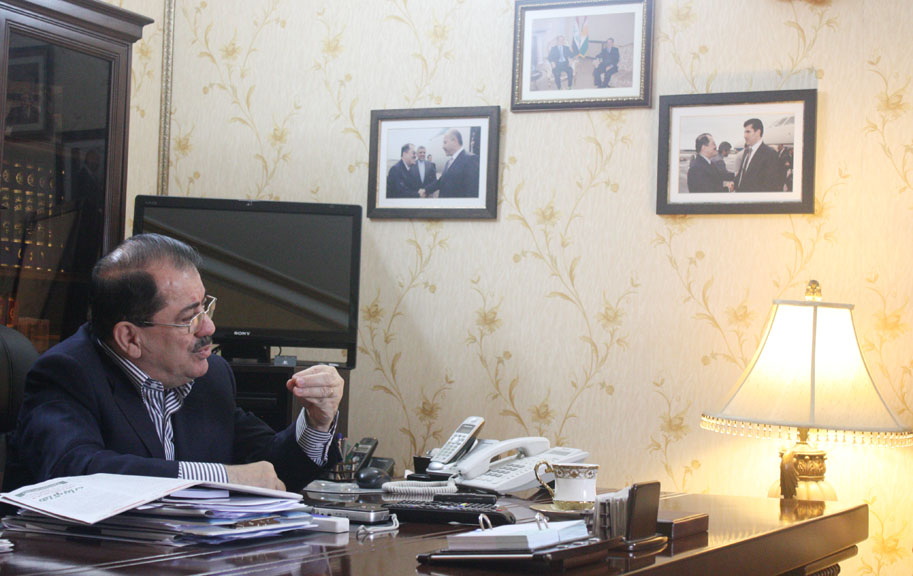
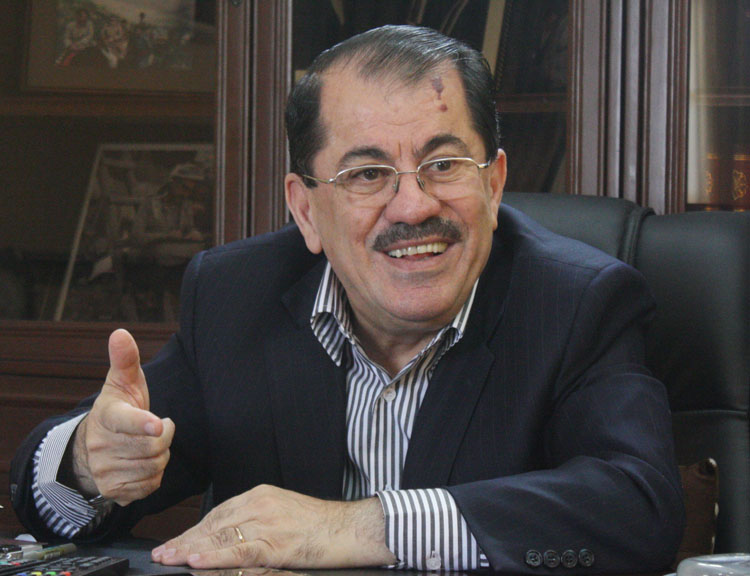
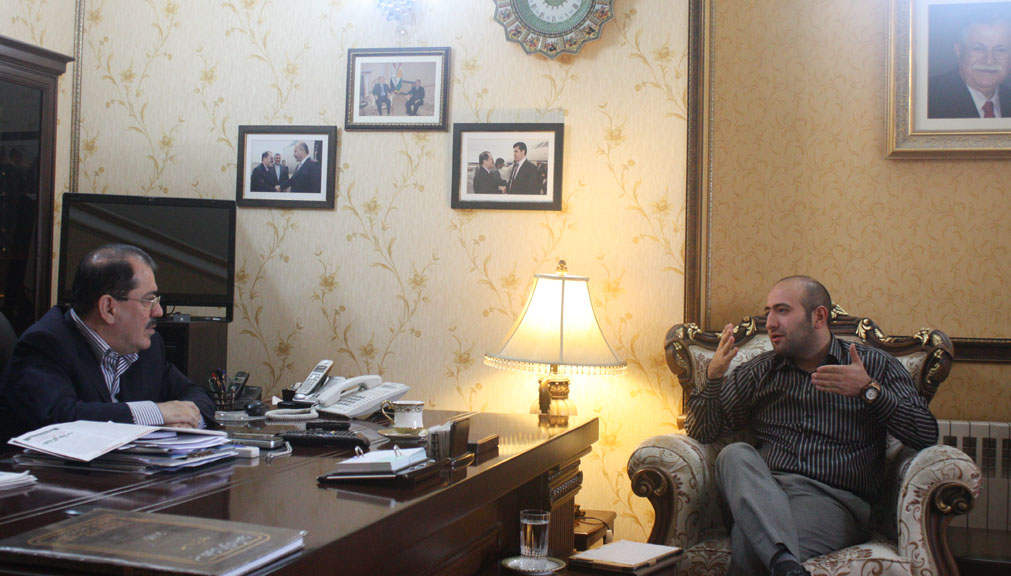
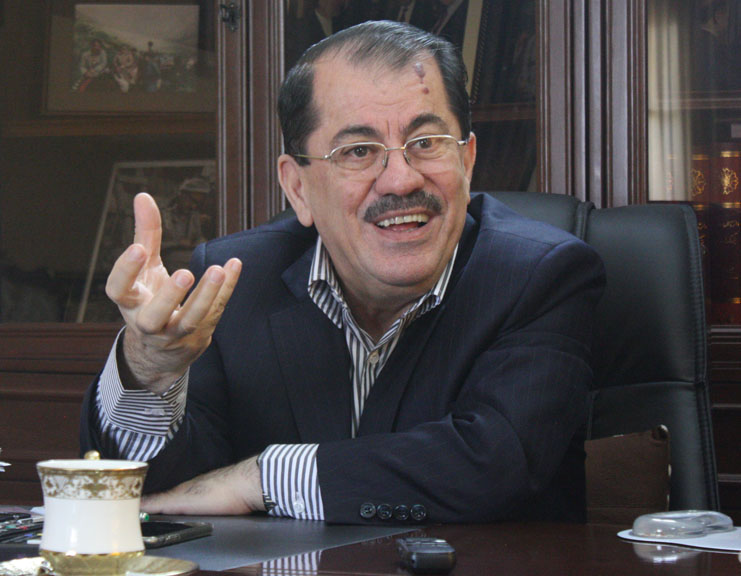
Kurdistan Region Presidency Statement on Role of Russia against ISIS
Kurdistan Region Presidency issued the following statement:
In the campaign against ISIS terrorists, the Kurdistan Peshmerga have been a main force in the fight against this organization on the ground, and they have been able to secure major victories against them. In this campaign, the Kurdistan Region is a key partner in the US-led international coalition in Iraq.
The Kurdistan Region is grateful to any country or side that is prepared to assist the Peshmerga in the fight against ISIS, and it would welcome Russian assistance. Global efforts to defeat ISIS terrorists would be more effective if there is cooperation and coordination between the US-led international coalition and Russia.
South Korea to further support the Kurdistan Region
Erbil, Kurdistan Region, Iraq (cabinet.gov,krd) - Prime Minister Nechirvan Barzani yesterday welcomed South Korean Ambassador to Iraq, Mr. Jang Won-Jo. Both expressed interest in furthering good relations.
Ambassador Jang commended the Kurdistan Region's people and government for accommodating and helping hundreds of thousands of displaced people despite severe financial constraints.
He also praised the role of Peshmerga forces for their effectiveness in fighting terrorism and providing security.
A primary purpose of this visit was to deliver humanitarian assistance for displaced people.
Prime Minister Barzani and Ambassador Jang also discussed the security situation and relations with Baghdad.
Prime Minister Barzani receives UK Minister of State for International Development
Erbil, Kurdistan Region, Iraq (cabinet.gov.krd) - Kurdistan Region Prime Minister, Nechirvan Barzani, yesterday received United Kingdom Minister of State for International Development, Mr. Desmond Angus Swayne and his accompanying delegation.
Kurdistan Regional Government Deputy Prime Minister, Qubad Talabani, Minister of Interior Karim Sinjari, and Chaldean Archbishop, Bashar Warda were also in attendance.
Minister Swayne expressed appreciation to the Kurdistan Region’s people and government for accommodating and assisting hundreds of thousands of displaced people in the midst of a financial crisis and active fight against terrorism.
He discussed efforts to provide additional assistance in health and education. He reaffirmed the UK Government’s interest in furthering relations with the Kurdistan Region.
Prime Minister Barzani expressed his government's gratitude for the assistance the UK has been offering the Kurdistan Region. He welcomed further development of relations with the UK, including economic ties, and stressed the urgent need for additional assistance from the international community.
He explained the Region’s response in accomodating displaced people seeking refuge in Kurdistan Region, the war situation against the Islamic State terrorist organisation, ISIS and the effectiveness of Peshmerga forces, as well as the financial crisis due to the failure of Baghdad to provide Kurdistan Region's full share from the federal budget as agreed with Erbil.
More...
Latest News
- President Nechirvan Barzani in Vienna: Austria aims to enhance diplomatic and trade relations
- Kurdistan Region President meets with President of Austria
- President Nechirvan Barzani meets with Foreign Minister of Austria
- President Erdoğan reaffirms Türkiye’s continued support for Iraq and the Kurdistan Region
- President Nechirvan Barzani’s message on the 126th anniversary of Kurdish journalism
- President Nechirvan Barzani at the Sulaimani Forum: The country must bring us all together
- President Nechirvan Barzani meets with European Union Ambassador
- President Nechirvan Barzani receives French Ambassador
- President Nechirvan Barzani visits Iranian Consulate General to pay respects to victims of Kerman terrorist attack
- President Nechirvan Barzani receives outgoing French Ambassador
- President Nechirvan Barzani condemns terrorist bombings in Iran
- President Nechirvan Barzani meets with US Deputy Secretary of State
- President Nechirvan Barzani’s New Year Address
- KRG Prime Minister Meets with US Deputy Secretary of State
- KRG Prime Minister Engages in Key Talks with UNAMI Chief
- KRG Prime Minister Hosts Diplomats from Iraq and Kurdistan Region
- KRG Prime Minister Meets with the UN’s Secretary-General at COP28
- President Nechirvan Barzani meets with Turkish Ambassador
- KRG Prime Minister Welcomes UK Military Delegation
- President Nechirvan Barzani meets with UK Chief of the Defense Staff’s Senior Middle East Advisor
- KRG Prime Minister Discusses Regional Issues and Domestic Policies in Special Panel
- KRG Prime Minister Meets with Former British Prime Minister
- MEPS Forum in Duhok Highlights Climate Change Among Key Global Challenges
- KRG Prime Minister Meets with United Nations Delegation
- President Nechirvan Barzani and French Ambassador discuss the situation in Iraq and the region
- President Nechirvan Barzani meets with Head of the Independent Strategic Review of UNAMI
- KRG Prime Minister Inaugurates 5th International Trade Fair for Industry and Construction
- KRG Prime Minister Meets Qatar's Consul General
- President Nechirvan Barzani meets with Iraq’s Oil Minister
- KRG Prime Minister Welcomes Cardinal Sako of the Chaldean Catholic Church

